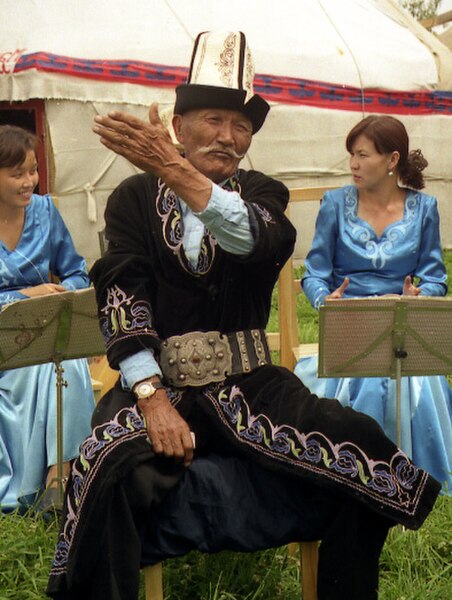Ancient Greek literature is literature written in the Ancient Greek language from the earliest texts until the time of the Byzantine Empire. The earliest surviving works of ancient Greek literature, dating back to the early Archaic period, are the two epic poems the Iliad and the Odyssey, set in an idealized archaic past today identified as having some relation to the Mycenaean era. These two epics, along with the Homeric Hymns and the two poems of Hesiod, the Theogony and Works and Days, constituted the major foundations of the Greek literary tradition that would continue into the Classical, Hellenistic, and Roman periods.
A Greek manuscript of the beginning of Hesiod's Works and Days
Linear B tablet from the Archaeological Museum of Mycenae
Tablet MY Oe 106 (obverse) exhibited at the Greek National Archaeological Museum
A painting by the French Neoclassical painter Thomas Degeorge depicting the climactic final scene from Book Twenty-Two of The Odyssey in which Odysseus, Telemachus, Eumaeus, and Philoetius slaughter the suitors of Penelope
Literature is any collection of written work, but it is also used more narrowly for writings specifically considered to be an art form, especially prose, fiction, drama, poetry, and including both print and digital writing. In recent centuries, the definition has expanded to include oral literature, much of which has been transcribed. Literature is a method of recording, preserving, and transmitting knowledge and entertainment, and can also have a social, psychological, spiritual, or political role.
A traditional Kyrgyz manaschi performing part of the Epic of Manas at a yurt camp in Karakol, Kyrgyzstan
Egyptian hieroglyphs with cartouches for the name "Ramesses II", from the Luxor Temple, New Kingdom
The intricate frontispiece of the Diamond Sutra from Tang dynasty China, the world's earliest dated printed book, AD 868 (British Library)
The Adventures of Pinocchio (1883) is a canonical piece of children's literature and one of the best-selling books ever published.








